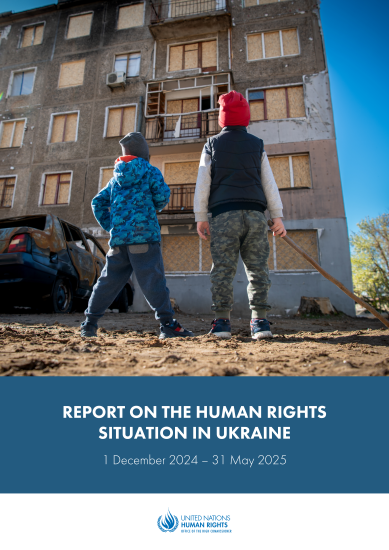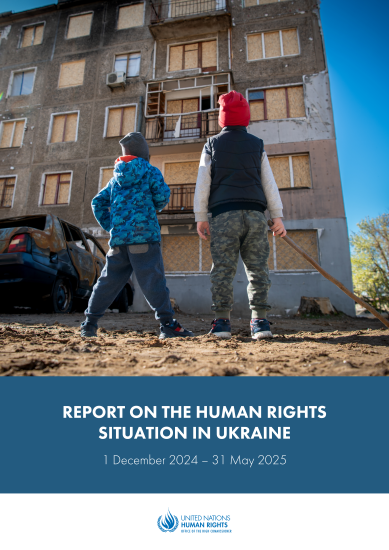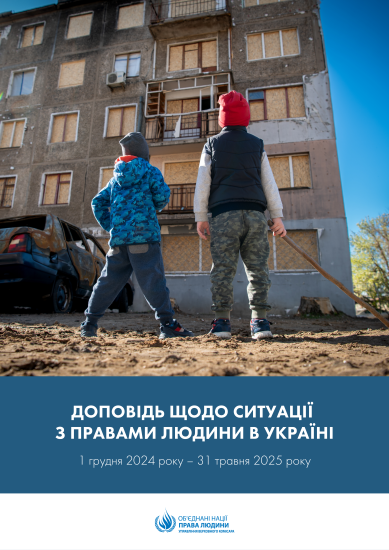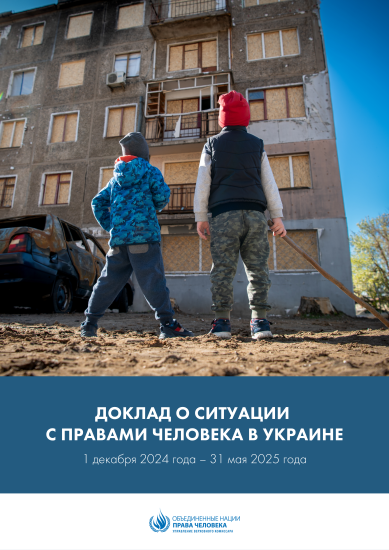Report on the Human Rights Situation in Ukraine, 1 December 2024 – 31 May 2025

Executive summary
1. Conflict-related violence killed 968 civilians and injured 4,807 between 1 December 2024 and 31 May 2025, a 37 per cent increase compared with the same period last year. The vast majority of casualties occurred in territory controlled by the Government of Ukraine as a result of military operations by the Russian armed forces to acquire control by force of further territory along the frontline, the use of explosive weapons with wide area effect in urban areas across the country, and the increased use of short-range combat drones. Russian armed forces struck at least five hospitals directly in the reporting period, some of them with multiple munitions.
2. In a growing number of cases, unidentified persons contacted children in Ukraine over social media and offered them money to commit acts of sabotage, including through acts of arson and deployment of improvised explosive devices, against Ukrainian military targets and civilians. Some children were killed carrying out these acts; others were detained and face serious criminal charges.
3. Widespread violations against Ukrainian soldiers captured by Russian armed forces continued. OHCHR documented credible allegations that Russian armed forces executed at least 35 captured Ukrainian soldiers during the reporting period, consistent with the increasing number of documented executions since late August 2024. Recently released Ukrainian prisoners of war (POWs) also provided detailed accounts of recent use of torture and ill-treatment, including sexual violence, and dire detention conditions in facilities managed by the Russian Federation and confirmed previous findings of widespread and systematic use of torture and ill-treatment. Released Ukrainian civilian detainees held by Russian authorities also described torture, ill-treatment and dire conditions of detention, confirming previously established patterns.
4. POWs held by Ukraine recounted torture and ill-treatment in transit places before arrival at official places of internment.
5. In territory of Ukraine occupied by the Russian Federation, Russian authorities increased pressure on residents to obtain Russian citizenship or to leave, with new laws and decrees restricting access to, for example, pensions and health care for people without Russian citizenship or permanent residency. Russian occupying authorities imposed administrative fines on residents of occupied territory for legitimate expressions of Ukrainian cultural identity, or for criticizing the authorities, and they accelerated efforts to expropriate private property, mainly belonging to displaced Ukrainians, in violation of international humanitarian law (IHL).
6. In territory controlled by the Government of Ukraine, the authorities continued to prosecute Ukrainians on charges of collaboration for work that can be lawfully compelled by the occupying Power under IHL. Men also continued to be denied the right to conscientious objection. Older persons and persons with disabilities continued to face barriers in evacuating from dangerous areas and in accessing adequate and affordable housing once displaced. They also remained at high risk of institutionalization.



